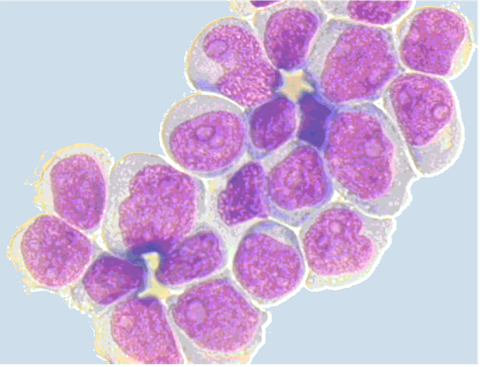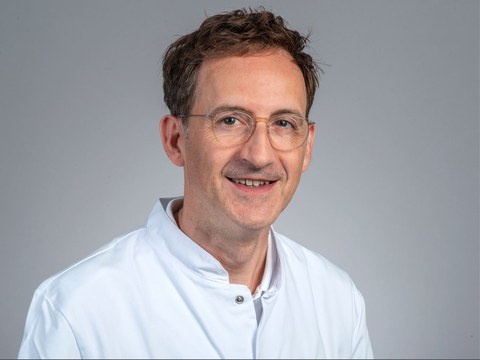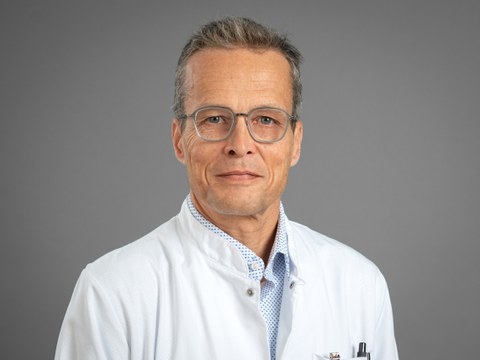Sep 17, 2024
German-Czech clinical trial provides key data for improving treatment of acute leukemia

Immature leukemia cells that suppress healthy blood formation, which can have life-threatening consequences for patients with acute myeloid leukemia (AML). The objective of prompt treatment with intensive chemotherapy is to destroy these malignant cells so that healthy blood formation can re-establish itself.
Acute myeloid leukemia (AML) is a blood cancer originating in the bone marrow. Malignant blood stem cells multiply in an uncontrolled manner. With a total of four new cases per 100,000 people in Germany each year, it is the most common acute leukemia in adults, accounting for more than 80 percent of cases. Over a period of eight years, the German-Czech DaunoDouble Clinical Trial, initiated by the Faculty of Medicine at TU Dresden and the University Hospital Dresden, examined the two most important clinical issues in the intensive curative standard therapy for acute myeloid leukemia: First, what is the optimal dose of the drug daunorubicin? And second, do newly diagnosed patients need to be treated with one or two cycles of chemotherapy?
During the clinical trial, 864 German and Czech patients aged 18 to 65 with newly diagnosed AML were treated with two different doses of daunorubicin – 60 mg/m² or 90 mg/m². The aim was to determine the optimal dose with the best effects for healing. Daunorubicin is a natural glycoside and antibiotic from the group of anthracyclines. It is used as a cytostatic agent in combination chemotherapy for acute leukemia.
The scientists from Dresden were able to show that three doses of 90 mg/m² daunorubicin lead to similar response and cure rates as three doses of 60 mg/m² without significant differences in tolerability. In the course of the same trial, the researchers addressed a second controversial question: So far, double induction has been considered the therapeutic standard in many parts of the world – this means an immediate repetition of the first chemotherapy cycle, regardless of the response to the first course of therapy. For decades, there has been a heated debate about whether a second cycle is necessary at all to achieve a long-term cure if the treatment response was positive, or whether patients could be spared the side effects of a double induction. Therefore, in the second part of the trial, patients with a good response were randomly assigned to either a second induction cycle or no further chemotherapy. The results revealed that the proportion of disease-free patients did not differ between the two treatment protocols and that survival, i.e. the long-term prognosis, was not significantly worse after single induction therapy than after double induction. As expected, however, the double induction required a further hospital stay of about four to six weeks. In addition, two cycles of therapy cause significantly more side effects than one. The trial was thus able to finally resolve the question of double induction in patients with a good initial response, and enable future patients to undergo a shorter treatment.

Prof. Christoph Röllig
“For a long time, it was assumed that a higher chemotherapy dose could have advantages,” Professor Christoph Röllig, one of the initiators of the trial and Head of Hematology and Clinical Trials at Medical Clinic 1 at University Hospital Dresden, explains. In this multicenter trial, we were able to refute this assumption and achieve optimal efficacy with fewer side effects for future patients.“

Prof. Martin Bornhäuser
”For patients with AML, it is particularly important to suppress the disease as much as possible through chemotherapy in order to achieve a cure,” adds Professor Martin Bornhäuser, co-initiator of the trial and Director of Medical Clinic 1 at the University Hospital Dresden. “This trial provides us with significantly more reliable information for the optimal counseling and treatment of our patients."
The DaunoDouble Clinical Trial was based on a transregional and transnational collaboration conducted by the German cooperative AML trial group Studienallianz Leukämie (SAL) and the Czech Leukemia Group for Life (CELL). It was coordinated and implemented by the SAL Trial Center at Medical Clinic 1 of the University Hospital Dresden under the direction of Professor Martin Bornhäuser and Professor Christoph Röllig. The trial was funded by TU Dresden.
“Conducting clinical trials is one of the strengths of University Medicine in Dresden,” says Professor Michael Albrecht, Medical Director of the University Hospital Dresden. “As a result, patients at our specialized treatment centers have rapid access to the latest therapeutic methods."
The results of the large randomized controlled clinical trial DaunoDouble have been published online in the renowned Journal of Clinical Oncology on September 16.
"The trial and, above all, the response to it demonstrate the high level of scientific expertise in research into treatment options for leukemia at the Dresden research hub,” says Professor Esther Troost, Dean of the Faculty of Medicine at TU Dresden. “Publication in the Journal of Clinical Oncology, one of the most prestigious journals in the field of hemato-oncology, with an impact factor of 42, underscores this achievement.”
The results of the randomized DaunoDouble trial were published on September 16, 2024 at the following link https://ascopubs.org/journal/jco.
Contact:
Anne-Stephanie Vetter
Staff Unit Public Relations of Carl Gustav Carus Faculty of Medicine
at TUD Dresden University of Technology
+49 351 458 17903
www.tu-dresden.de/med
